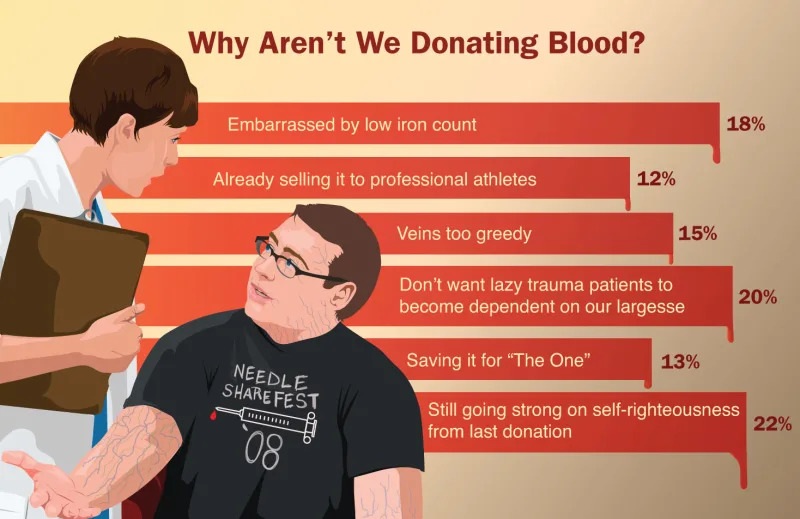Who Can't Donate Blood?

Who can't donate blood?
The Most Common Reasons for not being able to give Blood
Temporary Reasons
Condition and Length of time before you can give blood
Not feeling well for any reason, until symptoms are over.
Cold, sore throat, respiratory infection, flu, until symptoms are over.
Difficulty of breathing, shortness of breath, asthma, no difficulty breathing on day of donation.
Antibiotics, two days after treatment is over if taken for infection.
Blood transfusion, one year after receiving blood.
Full–term pregnancy, six weeks after delivery.
Abortion or miscarriage, six weeks if after the first trimester (12 weeks).
Surgery, serious injury, when healing is completed.
Dental work, seventy–two hours after root canal or after extraction of tooth.
Sexually transmitted disease: Venereal disease, chlamydia, genital herpes, syphilis, gonorrhea.
Have had sex with a male or female prostitute within the past twelve months..
Open–heart surgery, three years after surgery.
Measles, mumps, chicken pox, three weeks from day of exposure.
Tuberculosis (T.B.), two years after completion of treatment.
Aspirin.
Sniffed cocaine or any other restricted drugs within last 12 months.
A woman who is menstruating, (safer to donate a week after it).
Permanent Reasons
Please do not give blood if you
Have used narcotic drugs by intravenous route (injecting directly in the vein), even once.
If you are suffering from conditions like hemophilia or any other blood disorder.
Had a positive antibody test for HIV (aids virus).
If you are a commercial sex worker.
Have had hepatitis any time after your eleventh birthday.
Have had cancer.
Have multiple sclerosis.
If ever had myocardial infarction, coronary artery bypass surgery.
Have had a stroke.
Have had Chagas disease.
